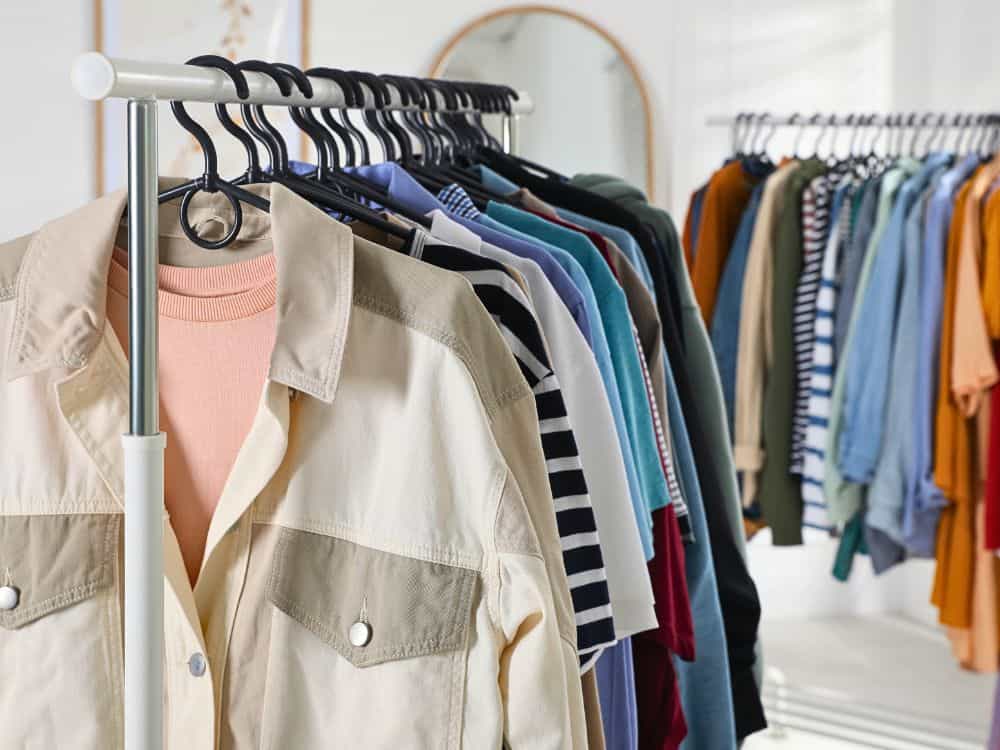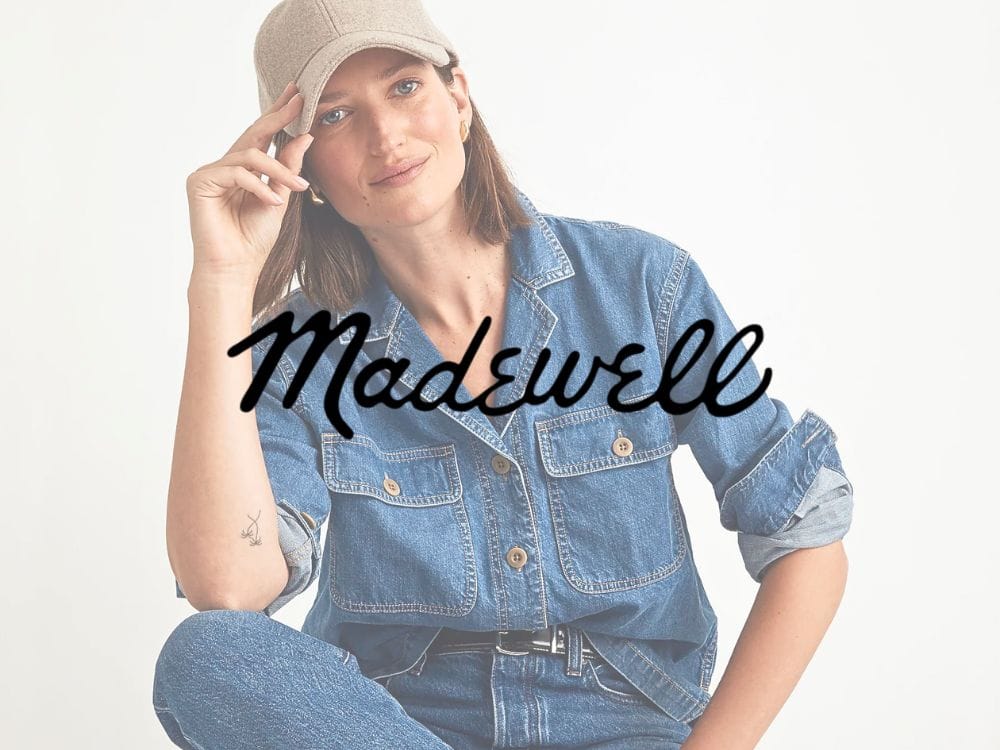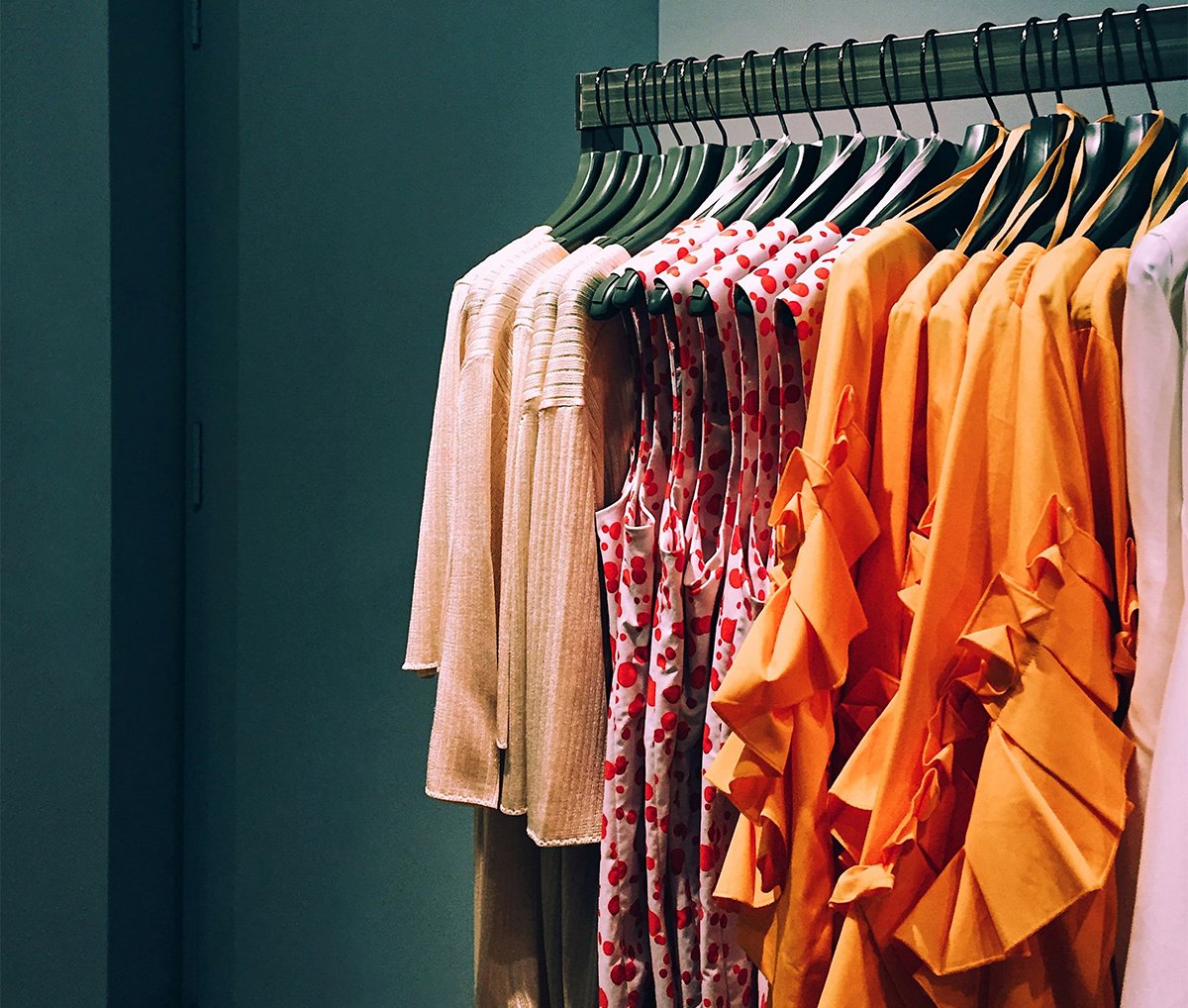Madewell is not typically classified as fast fashion. It focuses on quality and timeless styles rather than rapid trends.
Madewell is a popular brand known for its high-quality denim and classic pieces. Unlike fast fashion brands, Madewell emphasizes sustainability and ethical manufacturing practices. The brand aims to create durable clothing that lasts, promoting a more thoughtful approach to fashion consumption.
While it offers trendy items, its core mission revolves around producing timeless and versatile wardrobe staples. Madewell collaborates with various sustainability initiatives, ensuring reduced environmental impact. This focus makes it a preferred choice for conscious consumers looking for both style and substance. Understanding Madewell’s values helps shoppers make informed decisions about their purchases.

Madewell’s Brand Identity
Madewell is a popular clothing brand known for its casual, stylish apparel. Many people wonder if Madewell falls under the category of fast fashion. To understand this, we need to delve into Madewell’s brand identity, history, and target audience.
Company History
Madewell was founded in 1937 as a workwear company. It was known for its durable, high-quality denim. In 2006, J.Crew acquired Madewell and transformed it into a trendy, casual fashion brand. Today, Madewell is famous for its jeans, comfortable clothing, and stylish accessories.
Target Audience
Madewell targets young adults who love casual, chic fashion. Their customers prefer high-quality, stylish clothing that lasts. They care about sustainability and ethical practices in fashion.
- Young professionals
- College students
- Fashion-conscious shoppers
Madewell’s target audience appreciates timeless style and durability. They often seek versatile pieces that can be worn for various occasions.
Production Practices
Understanding Madewell’s production practices is essential to determine if it qualifies as fast fashion. This section will explore the brand’s manufacturing locations and material sourcing to shed light on their production ethics.
Manufacturing Locations
Madewell manufactures its products in various countries. These include China, Vietnam, and India. The brand also produces items in the USA. Each location has different labor standards.
Below is a table summarizing Madewell’s key manufacturing locations:
| Country | Labor Standards |
|---|---|
| China | Varied, often scrutinized |
| Vietnam | Improving, but issues remain |
| India | Mixed, with notable concerns |
| USA | Higher labor standards |
Material Sourcing
Madewell sources materials from different suppliers. The brand uses both natural and synthetic fabrics. Key materials include cotton, denim, and leather.
Madewell has initiatives for sustainable sourcing. They use organic cotton and recycled fibers. Below are some materials used by Madewell:
- Cotton: Organic and conventional
- Denim: Recycled and new
- Leather: Ethical sources
These efforts aim to reduce environmental impact. The brand also focuses on ethical sourcing practices. This helps in promoting sustainability.
Sustainability Efforts
Madewell is a popular clothing brand known for its stylish designs. But is Madewell fast fashion? Let’s explore their sustainability efforts to find out.
Eco-friendly Initiatives
Madewell has several eco-friendly initiatives. They use organic cotton in many products. They also incorporate recycled materials into their clothing.
The brand partners with the Better Cotton Initiative to improve cotton farming practices. They aim to reduce water usage and ensure fair labor conditions.
Waste Reduction Strategies
Madewell has put in place various strategies to reduce waste. They offer a denim recycling program where customers can donate old jeans. These jeans are then turned into housing insulation.
The brand focuses on minimizing fabric waste during production. They design patterns that use fabric efficiently. This reduces leftover scraps.
Madewell also uses sustainable packaging. Their shopping bags are made from recycled paper. They aim to eliminate plastic packaging entirely.
| Initiative | Details |
|---|---|
| Organic Cotton | Used in many products |
| Recycled Materials | Incorporated into clothing |
| Denim Recycling Program | Old jeans turned into insulation |
| Sustainable Packaging | Made from recycled paper |

Pricing And Accessibility
Understanding the pricing and accessibility of Madewell helps reveal its market strategy. This section dives into how the brand positions itself in terms of affordability and market reach.
Affordability
Madewell offers clothing at a mid-range price point. This makes it accessible to many consumers. Their pricing strategy aims to balance quality and cost.
Let’s look at some examples:
| Item | Price Range |
|---|---|
| Jeans | $75 – $150 |
| T-Shirts | $20 – $50 |
| Dresses | $50 – $150 |
These prices make Madewell more affordable than luxury brands. Yet, it is pricier than typical fast fashion retailers.
Market Positioning
Madewell positions itself between fast fashion and high-end brands. It targets consumers who seek quality but at a reasonable price.
The brand focuses on:
- Quality materials
- Stylish designs
- Durability
This approach attracts a loyal customer base. Many shoppers prefer Madewell for its blend of style and quality.
Madewell’s market positioning also appeals to conscious consumers. They aim for sustainable practices, which is a key selling point.
In summary, Madewell offers accessible pricing and smart market positioning. This makes it a popular choice for many shoppers.
Consumer Perception
Madewell is often discussed in the context of fast fashion. Consumer perception plays a crucial role in this conversation. How do customers view Madewell’s practices?
Customer Reviews
Customer reviews can tell us a lot about a brand. On various platforms, customers have shared their thoughts on Madewell.
- Many praise the quality of the clothing.
- Some appreciate the style and trends.
- Concerns about sustainability are also mentioned.
Here’s a table summarizing key points from customer reviews:
| Aspect | Positive Feedback | Negative Feedback |
|---|---|---|
| Quality | High-quality materials | Durability issues |
| Style | Trendy designs | Limited variety |
| Sustainability | Efforts to be eco-friendly | Not enough transparency |
Social Media Presence
Madewell has a strong presence on social media. They use platforms like Instagram and Twitter to engage with customers.
- Instagram: Over a million followers.
- Twitter: Active engagement with customers.
- Facebook: Regular updates and promotions.
Social media comments reflect mixed feelings. Some users love the brand. Others question their fast fashion status.

Comparisons With Other Brands
Madewell is often compared with other fashion brands. Some are fast fashion giants. Others focus on sustainability. Let’s explore these comparisons.
Fast Fashion Giants
Fast fashion brands like Zara, HM, and Forever 21 dominate the market. They offer trendy clothes at low prices. But they face criticism for environmental impact and labor practices.
| Brand | Price Range | Production Speed |
|---|---|---|
| Zara | Low to Medium | Very Fast |
| HM | Low | Fast |
| Forever 21 | Very Low | Fast |
Sustainable Brands
Sustainable brands focus on ethical practices. Patagonia, Eileen Fisher, and Reformation are known for this. They use eco-friendly materials and fair labor practices.
- Patagonia: Uses recycled materials. Advocates for environmental causes.
- Eileen Fisher: Focuses on organic fabrics. Supports fair trade.
- Reformation: Uses sustainable fabrics. Transparent about their processes.
Madewell sits between these extremes. They offer quality clothes and are making efforts toward sustainability.
Frequently Asked Questions
Is Madewell Considered Fast Fashion?
Madewell is not typically considered fast fashion. It focuses on higher quality, timeless pieces. However, some argue it has fast fashion elements.
How Sustainable Is Madewell?
Madewell aims to be sustainable by using eco-friendly materials and ethical labor practices. Yet, it still has room for improvement.
Does Madewell Use Ethical Labor Practices?
Madewell claims to use ethical labor practices. They work with factories that follow fair labor standards, ensuring worker safety and fair wages.
Are Madewell Clothes High Quality?
Madewell is known for its high-quality clothing. They focus on durable materials and timeless designs that last longer than typical fast fashion.
Conclusion
Madewell’s status as fast fashion is complex. They offer trendy pieces but emphasize quality and sustainability. Consumers must decide if their practices align with personal values. Research thoroughly before making a purchase. Make informed choices to support ethical fashion and sustainability.
Your buying decisions can drive positive change in the industry.
